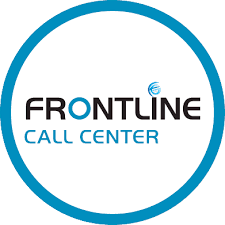Top Tax Issues Pass-Through Entities Should Consider in 2025
Written by: Madison Price Zender, CPA, MPAcc
Pass-through entities, including partnerships, S corporations, and LLCs, can benefit from many tax advantages due to their structure, but they also encounter distinct challenges. BDO’s 2024 Tax Strategist Survey, which polled senior tax executives about their most pressing concerns and plans for the year ahead, highlighted the specific tax risks and challenges pass-through entities are facing. Discover the top three takeaways from the data and actionable steps tax leaders can take to address these issues.
Takeaway 1: Changing Tax Policy May Motivate Pass-Through Entities to Reevaluate Structure
According to the BDO survey, expiring provisions in the Tax Cuts and Jobs Act (TCJA) and potential changes to the corporate tax rate were the top election-related tax concerns for pass-through entities. With the 2024 election behind us, tax leaders are closely monitoring potential tax policy shifts, such as a lower corporate tax rate.
The election outcome and subsequent tax policy changes may influence some pass-through entities to consider restructuring. Moreover, recently issued IRS guidance highlights an increased scrutiny of partnerships and the structuring of certain partnership transactions. Pass-through entities must watch tax policy developments closely to assess how they might impact choice of entity, and they should be prepared to run analyses as legislation moves through Congress.
Takeaway 2: Pass-Through Entities Are Preparing for Increased IRS Enforcement
A majority of pass-through entities, 52%, considered increased IRS funding a key issue to monitor in the 2024 election. Now that the election outcome is clear, concerns about IRS enforcement may have waned, but pass-through entities should still be diligent about preparing for a potential audit which can come at any time. It’s possible that the new administration may seek to reduce IRS funding and/or unwind existing IRS guidance, including regulations. Monitoring such potential developments with an ability to quickly evaluate the potential impact on the company’s tax position is important.
Companies may also face increased scrutiny if they are planning a transaction like an acquisition or sale. Due diligence during a transaction is essential and should be top of mind as M&A activity is anticipated to increase in 2025.
To prepare for an IRS examination or potential increased scrutiny during sell-side due diligence, pass-through entities should proactively address their tax vulnerabilities. Approaches can include meticulously reviewing tax positions and reported amounts on tax return filings, improving internal controls to reduce risks and enhance accuracy and efficiency in return preparation, and adopting tax technology and automation to streamline processes. Collaboration with service providers can help proactively identify risks in returns and processes, enabling entities to potentially avoid or be better prepared for IRS audits or examinations. If faced with an audit, it may be strategic to outsource exam preparation.
Takeaway 3: Pass-Through Entities Grapple with Employment Tax Disputes
Tax disputes can impact any company, but BDO data reveals that pass-through entities are more susceptible to employment tax-related disputes compared to other business structures. In the past year, 32% of pass-through entities involved in tax disputes faced issues related to employment taxes.
Employment tax disputes have been a recurring challenge for pass-through entities, especially partnerships, since the IRS intensified scrutiny of how partnerships report partners’ self-employment income. Individuals actively participating in a partnership’s business may soon be unable to rely on the “limited partner” exception to avoid self-employment taxes. Consequently, pass-through entities should carefully evaluate their self-employment tax positions in anticipation of upcoming judicial guidance and consider collaborating with external professionals to help navigate the complexities of partnership tax.
The pass-through entity taxation landscape is rapidly evolving. Tax professionals must navigate evolving tax technology, complex international tax requirements, global tax planning challenges, changing regulations, state and local tax complexities, and more. To effectively address these challenges, pass-through entities should work with qualified advisors. A proactive approach will help them stay ahead of compliance requirements, ultimately avoiding costly issues in the future.



